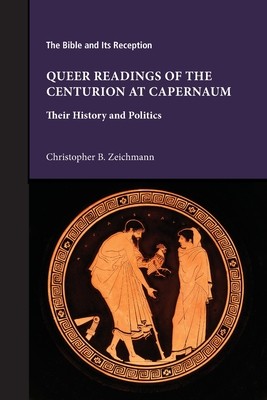
- We will send in 10–14 business days.
- Author: Christopher B Zeichmann
- Publisher: SBL Press
- ISBN-10: 1628374543
- ISBN-13: 9781628374544
- Format: 15.2 x 22.9 x 1.9 cm, minkšti viršeliai
- Language: English
- SAVE -10% with code: EXTRA
Queer Readings of the Centurion at Capernaum (e-book) (used book) | bookbook.eu
Reviews
Description
Since the 1950s, homoerotic readings of the pericope in which Jesus heals a Roman centurion's slave have been built upon the specific Greek word pais, which can refer to youth, slave, or the junior partner in a sexual relationship between two men; Luke's characterization of the young man as "dear" (entimos) to the centurion; and commonplace homoeroticism in the Roman army. In this book Christopher B. Zeichmann traces shifts in queer readings of the text and the influences of the sexual, political, and theological discourses of the late twentieth and early twenty-first century.
EXTRA 10 % discount with code: EXTRA
The promotion ends in 23d.05:01:07
The discount code is valid when purchasing from 10 €. Discounts do not stack.
- Author: Christopher B Zeichmann
- Publisher: SBL Press
- ISBN-10: 1628374543
- ISBN-13: 9781628374544
- Format: 15.2 x 22.9 x 1.9 cm, minkšti viršeliai
- Language: English English
Since the 1950s, homoerotic readings of the pericope in which Jesus heals a Roman centurion's slave have been built upon the specific Greek word pais, which can refer to youth, slave, or the junior partner in a sexual relationship between two men; Luke's characterization of the young man as "dear" (entimos) to the centurion; and commonplace homoeroticism in the Roman army. In this book Christopher B. Zeichmann traces shifts in queer readings of the text and the influences of the sexual, political, and theological discourses of the late twentieth and early twenty-first century.


Reviews